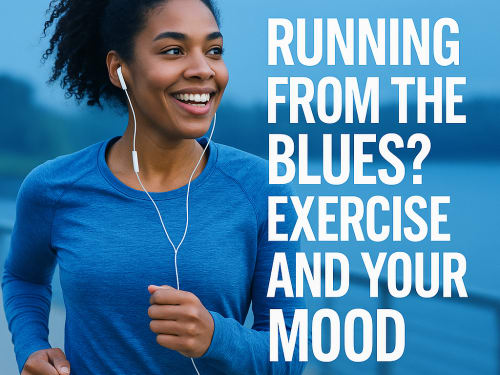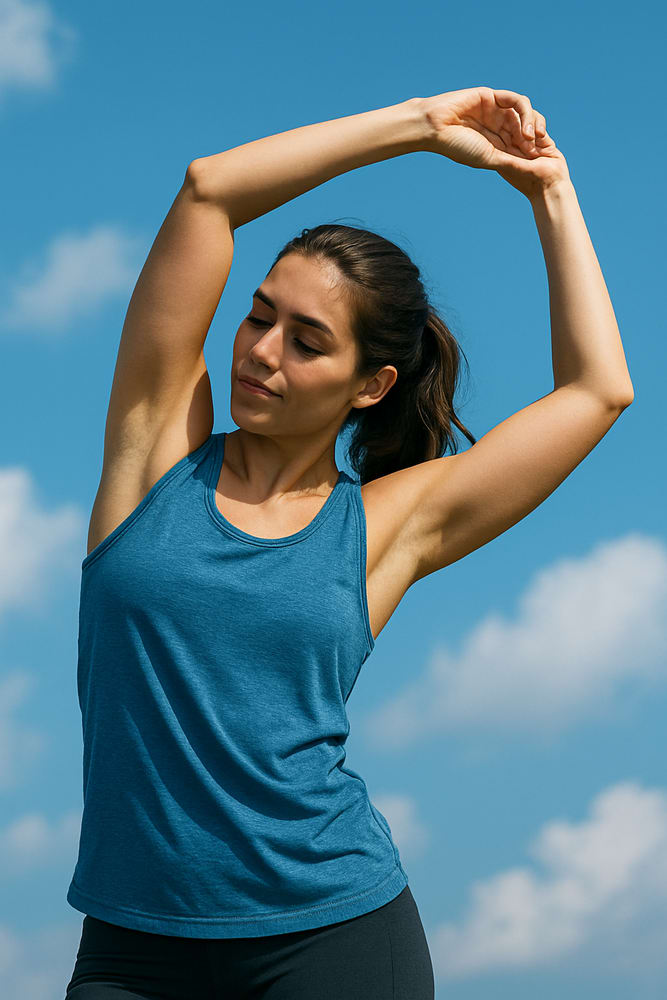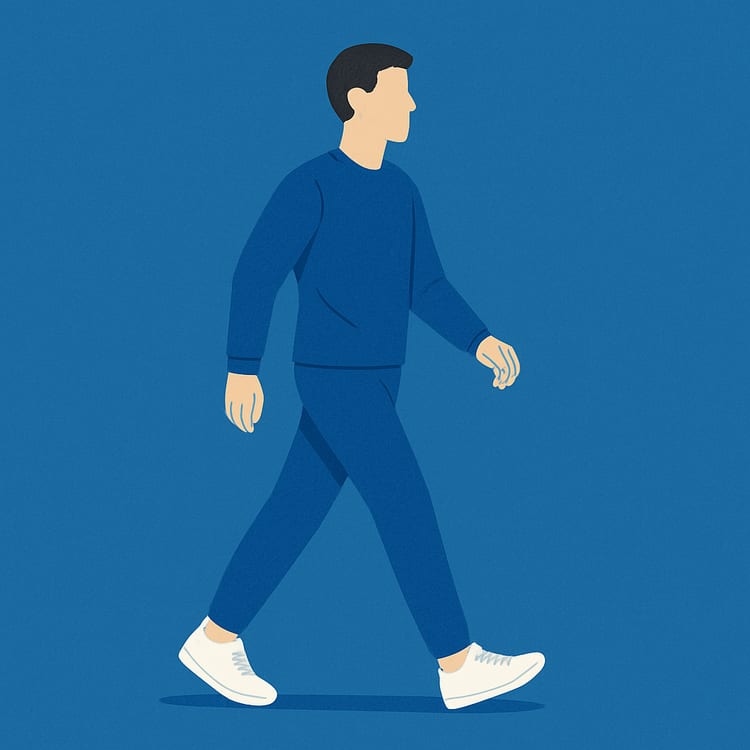Running From the Blues? Exercise and Your Mood

posted 18th September 2025

Running From the Blues? Exercise and Your Mood
Feeling low? You’re not alone. And yes, the classic “just go for a walk” advice actually has science behind it. Even small bursts of movement can lift your mood, reduce stress, and build resilience. From a brisk stroll to a short stretch, your mind benefits every time you move.
Why Exercise Boosts Mental Health
Exercise isn’t just about muscles; it’s a mental health powerhouse. When you move, your body releases endorphins and serotonin, the “feel-good hormones” that reduce stress, improve sleep, and help regulate mood.
Movement also offers:
- Distraction– breaking the cycle of negative thinking.
- Structure– adding routine and rhythm to your day.
- Control– giving you a sense of agency, even in small steps.
Over time, these benefits help protect against anxiety, stress, and depression.
What the Science Says 🧠✨
Recent research highlights just how powerful exercise can be for mental well-being:
- Mood boost: Regular activity improves mood and lowers stress by releasing serotonin and endorphins (Liu, Menhas & Saqib, 2024).
- Self-esteem: Exercise strengthens confidence, body image, and resilience (White et al., 2024).
- Better sleep: Physical activity supports healthy sleep cycles, vital for mental health (Hossain et al., 2024).
- Sharper thinking: Activities like dancing, balance training, or dual-task exercises improve memory and focus across all ages (Suryadi et al., 2024).
- Accessible for everyone: Even low-intensity activity helps. In one study, gentle movement reduced depression and PTSD symptoms among asylum seekers (Filippou et al., 2024).
It’s not about intensity. Consistency matters more.
How Much Exercise Do You Really Need?
Good news: you don’t need a gym. Research shows even 20 minutes of movement can lift mood, energy, and clarity (The First 20 Minutes).
Walking is especially powerful:
- 7,000 steps per day = 31% lower risk of depression.
- Every extra 1,000 steps = 9% lower risk (Schuch et al., 2024).
And it doesn’t have to be walking alone; yoga, dancing, stretching, gardening, or even light chores can also support your mental well-being.
Quick Tips to Get Moving Today
- Take the stairs instead of the lift.
- Go for a brisk 20-minute walk after lunch or work.
- Try a short yoga or dance video at home.
- Use a step tracker or app to set small, realistic goals.
- Team up with a friend, exercise becomes fun, and you’re more likely to stick with it!
✨ Small, regular steps add up. Your mind will thank you, one walk, stretch, or dance at a time.
Exercise isn’t a magic cure, but it’s one of the most reliable, accessible ways to lift your mood and build resilience.
Reference list
Bizzozero-Peroni, B., Díaz-Goñi, V., Jiménez-López, E., Rodríguez-Gutiérrez, E., Sequí-Domínguez, I., Núñez de Arenas-Arroyo, S., López-Gil, J.F., Martínez-Vizcaíno, V. and Mesas, A.E. (2024). Daily Step Count and Depression in Adults: A Systematic Review and Meta-Analysis. JAMA network open, [online] 7(12), p.e2451208. doi:https://doi.org/10.1001/jamanetworkopen.2024.51208.
Chapman, C. (2025). The 1% Good Club. John Wiley & Sons.
Didi Suryadi, Nasrulloh, A., Jeki Haryanto, Juni, T., Wati, P., Mikkey Anggara Suganda, Sigit Nugroho, Procopio, BM. Wara Kushartanti and Fauziah, E. (2024). What are physical exercise interventions in older age? Literature review for physical and cognitive function. Pedagogy of physical culture and sports, 28(3), pp.201–212. doi:https://doi.org/10.15561/26649837.2024.0305.
Hossain, M.N., Lee, J., Choi, H., Kwak, Y.-S. and Kim, J. (2024). The impact of exercise on depression: How moving makes your brain and body feel better. Physical Activity and Nutrition, [online] 28(2), pp.43–51. doi:https://doi.org/10.20463/pan.2024.0015.
Liu, R., Menhas, R. and Saqib, Z.A. (2024). Does physical activity influence health behavior, mental health, and psychological resilience under the moderating role of quality of life? Frontiers in Psychology, 15. doi:https://doi.org/10.3389/fpsyg.2024.1349880.
White, R.L., Vella, S., Biddle, S., Sutcliffe, J., Guagliano, J.M., Uddin, R., Burgin, A., Apostolopoulos, M., Nguyen, T., Young, C., Taylor, N., Lilley, S. and Teychenne, M. (2024). Physical Activity and Mental health: a Systematic Review and best-evidence Synthesis of Mediation and Moderation Studies. International Journal of Behavioral Nutrition and Physical Activity, [online] 21(1). doi:https://doi.org/10.1186/s12966-024-01676-6.




